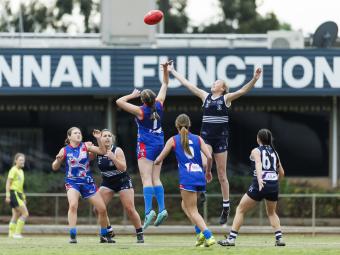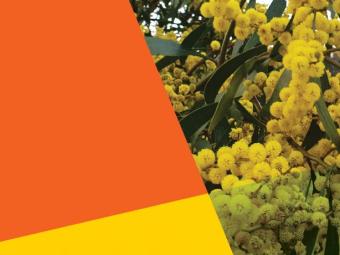Brendon Smith is unstoppable. At just 21 years old, the Donvale local stormed his way down the pool at the Tokyo 2020 Olympic Games to take home the bronze medal in the 400m Individual Medley.
The achievement made him our first medallist of the games and his proud friends and family were cheering him on from back home. A former student at Our Lady of the Pines Primary School and Yarra Valley Grammar, the medal marked the culmination of years of training and a tumultuous lead up during a global pandemic.
We were lucky enough to chat with Brendon shortly after this massive achievement.
When did you first realise swimming was what you wanted to do?
I went to “learn to swim” like most Aussies as a toddler, so that I could play in a backyard pool or go for a swim in the surf. It is a life skill that I think everyone should learn. My family has always been involved in swimming. My Grandmother taught ‘learn to swim’ at Nunawading Swimming Club for nearly 40 years, only retiring about 5 years ago. Both my parents were great swimmers, meeting as members of the Australian Lifesaving team. My three sisters Nerice, Mikayla and Reidel are excellent swimmers with Mikayla winning Australian medals from 12 years old. My journey was different. I was a good swimmer but not great. At age 14 I couldn’t even make either the A or B team for a relay at my club and at my first state championships I came last. I enjoyed swimming and training with my mates. I also kept very busy playing basketball and football.
Between 15 and 16 as I developed, my times starting dropping and I starting beating swimmers that were always faster than me. I won my first state medal at 15 and went onto winning my first individual medal at the Australian championships when I was 16. At that stage I stopped both football and basketball to concentrate on swimming. At 17 I won the Australian swimming championship 18/under and was selected in the Australian team for the Junior Pan Pacs where I won a silver and a bronze medal. That was probably the moment when I realised, “I can do this” and I felt I could go further and make an Australian open team.
If you weren’t a swimmer, what do you think you would you be doing?
Work-wise probably carpentry. I have always loved working with my hands and being outdoors. Other sports I’ve always loved have been football and basketball. During my time playing those sports I was pretty good at them because I was fitter than everyone else from all the swimming training. Unfortunately I was never able to go to many training sessions, so my skills weren’t the best.
How did Covid-19 impact your lead up to the games?
Covid had a huge impact. I came home from training on 26 May and had 2 hours to pack - not knowing if I was going to Queensland or South Australia. It was expected that Victoria was going into another lockdown and South Australia wouldn’t let the swimmers compete at the Olympic trials. Thank goodness we left because if we hadn’t I wouldn’t have been able to swim and make the team.
After making the team I wasn’t allowed back to Victoria so went to Townsville to start a two week training camp. Eight days into that we had to leave Townsville because there was going to be a three day lockdown and we needed to be in Cairns for the last staging camp and two week isolation before flying to Tokyo.
I think Covid has made me more resilient. You need to learn to adapt and only worry about the things you can control.
In my rush to pack I must admit that there are several things that I didn’t need to bring and many things that I wish I did. Hindsight is a wonderful thing.
How much extra pressure did you feel knowing you could win Australia’s first medal of Tokyo 2020?
I knew I was the first opportunity Australia had for a medal at the Olympics for swimming but had no idea that I would be the first across all sports. I expected that surfing or the road cycling race with either the men’s or women’s would be the first. The pressure I felt, was going into the final as the top seed from the heats. I understood that for the first time in history there was only 0.9 seconds between 1st and 8th and over 400m that is nothing. The final was always going to be extremely close and the swimmers who could back up the best after swimming a flat-out heat would be the medal winners.
I knew I had completed the training and done all the hard work. Knowing that always reduces the pressure because you can believe in yourself.
How aware are you of the position of other swimmers during the race? Does that change how you swim or do you just stick to your own plan?
Yes, I am aware of the other swimmers particularly those on either side of your lane. I wanted to swim my own race, that was always my plan. The race was slower than I expected, knowing that now I wish I had the courage to go out hard on my own. My back end is always the strongest so I need to ensure I don’t spend too much energy in the first 200m. I knew with 100m to go I had a lot of ground to cover and catch up. I just kept thinking I’m not going to give up. My family and the important people in my life know that I don’t give up and they would be proud no matter where I came. With 50m to go I didn’t expect I would be able to catch the field. I am so glad I didn’t give up otherwise I would regret it for the rest of my life.
How does it feel to be a part of our most successful Olympic swimming team ever?
Truly honoured. The team environment was amazing. This was my first open team so I have nothing to compare to but all the swimmers commented on the team atmosphere being the best ever and I think this played a major role in our overall success.
I turned 21 whilst we were at our staging camp in Cairns before heading to Tokyo. At dinner the team all sang happy birthday and I was given a brownie with a candle to blow out (cake was not on the menu so close to the games).
How did you celebrate your bronze medal?
I didn’t get to celebrate much. To be honest the day is just a blur. I can remember swimming, turning around and seeing 3rd against my name and feeling ecstatic, the medal presentation and media interviews but not much else. It was only day one of an eight day competition and I still had a job to do - swimming in the 200m Individual Medley later in the week. When the swimming finished, we all had to leave the village the next day so it was very anticlimactic.
I hope to celebrate with my family and friends when I return to Australia (Covid permitting).
What has been the strangest or most surprising part of competing in the Olympics during a pandemic?
The biggest thing I noticed around the Olympic village was the difference between countries and how they treated COVID. Australia took it very seriously with no interactions with other countries permitted, including in the food hall.
At the swimming, team members would come to cheer and once you were finished - it was compulsory to be in the stand cheering for your team mates. One of the most surprising parts was that with empty stands I didn’t expect there to be much atmosphere, however that wasn’t the case. There was plenty of cheering and the atmosphere there was great. (Obviously not as good as it should have been if the stand were full.)
I also felt very sorry for the people of Tokyo. From talking to other Australians all the venues were top quality and it was evident that Tokyo put in a lot of effort to ensure the games were amazing. To then have these venues empty was a huge shame.
The strangest part was my apartment. I shared with six other athletes and the table was a little round table with four plastic chairs that looked like what you would see at a kindergarten. It was funny as the boys I was sharing with are big and tall. The beds were made of cardboard and very hard to sleep on. It was a very unique experience for me.
Where have you headed after Tokyo?
I was selected to compete in the International Swimming league (ISL) Season 3 to swim for the New York Breakers. The competition goes for six weeks from the end of August. Instead of coming home to isolate for two weeks then leaving 10 days later for Europe I went directly from Tokyo to Rome for three weeks before heading to Naples for the ISL.
How did you feel to be back on a plane leaving the country after such a strange lead up?
Relieved. Once I made the team, I put everything going around me on “mute” to concentrate on my Olympic campaign. I remember some advice I was given when I made the team and it stuck with me, “You have made your first Olympic Games don’t get caught up in all the hype. Your aim is not to just make the team but to compete well for Australia, therefore your job is only half complete.”
I was aware that leading up to the games most of the media was concentrating on the people of Tokyo not wanting the games to go ahead. I was determined to swim two personal bests from my two events, with the hope that I could make an Olympic final. To come away with a medal is a dream come true.
What are your plans once you finally get home?
After quarantine I need to get straight back into hard training. The World Championship and Commonwealth Games are both next year with the trials for both in the first week of April. As my main event is the 400m Individual Medley, this is a distance race that requires a large work load. There is no easy way about it. My focus is on training hard and competing well at the next international competition.
What advice can you give kids who watched you and want to be just like you?
Please pick something you like to do and stick to it. One of my coaches at age 13 told me I was never going to make it and I should quit swimming and go and play basketball or football - I obviously didn’t listen!
I enjoyed swimming with my mates and at the time my goal was to make the district team to compete in Canberra. I think everyone needs to have short term goals as a stepping stone to their long term goals.
If you are prepared to put the work in you will achieve your best. Most importantly it doesn’t hurt to dream. If you would have told my parents or anyone who knew me when the Rio Olympics were on that I would be swimming and winning a medal in Tokyo they all would have said the same thing - “Tell him he’s dreaming.”
A special thanks to Brendon and his family for all their amazing input into this story. We are lucky to have such a young achiever in Manningham and can’t wait to follow his journey.
Photo by: Delly Carr

